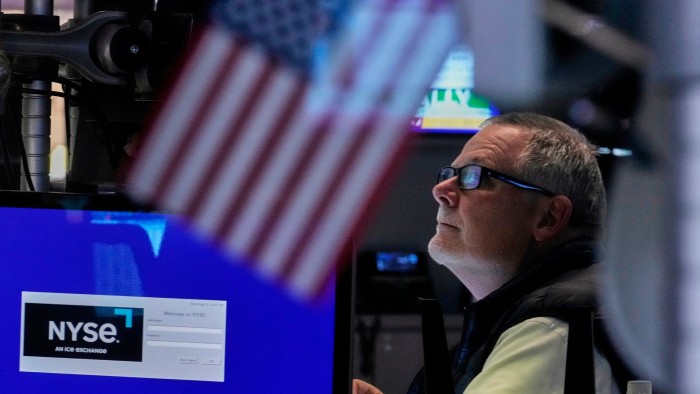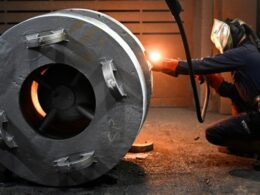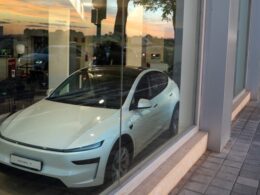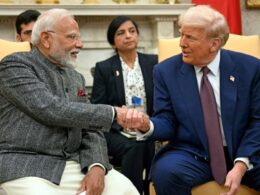This article is an on-site version of our FirstFT newsletter. Subscribers can sign up to our Asia, Europe/Africa or Americas edition to get the newsletter delivered every weekday morning. Explore all of our newsletters here
Good morning and welcome back. We start today with the 90-day truce in US-China trade war — and whether the global economy has made it through the worst of Donald Trump’s tariffs. Also in FirstFT Asia:
-
Modi claims Indian victory after clashes with Pakistan
-
A new Taiwanese TV drama depicts a Chinese invasion
-
How Xi sparked China’s electricity revolution
US stocks soared yesterday on hopes among investors that Washington and Beijing’s tariff détente meant Trump’s trade war was moving beyond its most intense phase.
Investor optimism: The US and China said yesterday that they would both cut tariffs for at least the next 90 days, following talks in Geneva at the weekend. US tariffs would be lowered to 30 per cent, while China’s would go down to 10 per cent. Wall Street stocks soared on the news. The blue-chip S&P 500 ended the day 3.3 per cent higher, while the tech-heavy Nasdaq Composite closed up 4.4 per cent. The dollar jumped 1.5 per cent against a basket of six peers, leaving it on track for its biggest daily rise since Trump’s election on November 5.
What analysts said: “Peak tariffs are very much in the past. We will take a growth hit this year, but that is different from a recession,” said Ajay Rajadhyaksha, global chair of research at Barclays. “Markets are defaulting to assuming we’re now in a 10-30 world: 10 per cent (tariffs) on most of the world, 30 per cent on China,” said Rajadhyaksha, who does not believe there will be significant changes to policy after the 90 days are up.
But Priya Misra, a fixed income portfolio manager at JPMorgan Asset Management, said “the uncertainty is still with us”. She added: “Companies still have to think about supply chains, investment, hiring . . . some damage has been done. The dust hasn’t fully settled yet.”
Who blinked first? A secret meeting held almost three weeks ago in the basement of the IMF headquarters paved the way to the US and China’s trade war ceasefire agreed in Geneva. Despite both sides warning they were willing to dig in for a long haul, the truce proved easier and faster to agree than expected. One overriding question has significant implications for the negotiations to come: did Beijing or Washington flinch first?
-
FT View: The three-month détente in the US-China trade war is undoubtedly a relief for the global economy, but uncertainty around Trump’s trade war has not gone away.
-
Opinion: Tariffs are a bet on the free market — that it can deliver better outcomes than a global market dominated by state-subsidised national champions — writes Oren Cass.
For more analysis, sign up for Alan Beattie’s Trade Secrets newsletter if you’re a premium subscriber, or upgrade your subscription. Here’s what else we’re keeping tabs on today:
-
Economic data: India and the US publish April CPI inflation figures.
-
Carmakers: Honda, Nissan and Tata Motors report full-year results.
-
China-Latin America ties: Beijing hosts a ministerial forum with the Community of Latin American and Caribbean States, where President Xi Jinping will deliver the opening speech.
-
Trump visits the Gulf: The US president is scheduled to arrive in Saudi Arabia today for the first official foreign tour since he returned to the White House, with high expectations of securing a raft of multibillion-dollar deals.
Donald Trump’s return to the White House has triggered heightened tensions with China, raising big questions for global business, markets and the rest of the world. Join us on May 28 for insights into the most consequential geopolitical rivalry of our time. Register now and put questions to our panel.
Five more top stories
1. India’s Prime Minister Narendra Modi has said his country has proved its military “superiority” in clashes with Pakistan that brought the nuclear-armed neighbours to the brink of war. In a triumphant televised address yesterday, Modi also warned that New Delhi had “drawn a new line” for Islamabad and that it had “only suspended” its military operation.
2. CATL, the world’s biggest producer of batteries for electric vehicles and energy storage systems, said it would raise at least $4bn in what is set to be Hong Kong’s biggest share sale and the largest listing globally so far this year. The shares will start trading on May 20, according to a prospectus filed with the Hong Kong stock exchange yesterday.
3. The Kurdistan Workers’ party (PKK) said yesterday it would end “the armed struggle” with the Turkish state and disband. The PKK, which is designated a terrorist group by Turkey and its western allies, has been in conflict with the Turkish state for more than 40 years. The historic move will have major political and security implications for the region.
4. Perplexity, the artificial intelligence search engine, is finalising a funding round that would value the start-up at $14bn, a $5bn jump from the valuation it secured six months ago. The $500mn round is being led by venture capital firm Accel, and comes as Perplexity aims to break Google’s two-decade dominance of the search market.
5. Trump has defended a plan for the US to accept a $400mn jumbo jet from Qatar “free of charge” after Democrats criticised the move as “corruption in plain sight”. The president called Qatar’s offer a “great gesture” and complained about how long it was taking to replace the US’s own Air Force One.
News in-depth
In a scene from the upcoming Taiwanese television drama Zero Day, a TV anchor reads the news without blinking: China has imposed a blockade on Taiwan and appears poised to attack. When the broadcast shifts to the defence ministry, she turns incredulously to her producer and asks: “Is there really going to be war?” The controversial series — the first work of mass entertainment to realistically portray a Chinese invasion — aims to have a real world impact by forcing the country’s public to ask itself the same question.
We’re also reading and watching . . .
-
Tehran’s café culture: Young Iranians are embracing the rest of the world, writes Najmeh Bozorgmehr — one pastry at a time.
-
Trump’s ‘America First’ policy: When you’re running a superpower, you can’t just ignore the outside world, as last week’s India-Pakistan clashes proved.
-
Interview 🎬: Trump ally Steve Bannon told the FTWeekend festival that the US president “will serve a third term” with the help of constitutional “workarounds”.
Chart of the day
China is on its way to becoming the world’s first “electrostate”, with a growing share of its energy coming from electricity and an economy increasingly driven by clean technologies. Today’s Big Read explores what that means for global trade, the Chinese economy and geopolitical tensions with the US.
Take a break from the news
The FT tested top apps from OpenAI, Anthropic, Google and more with requests to write emails, book travel and summarise the news. See how the leading AI agents compared on routine work tasks.

Source link










